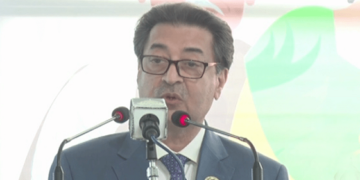The Psychology of Slot Hunting in Wanted Dead Or Alive
Wanted Dead or Alive is a popular slot machine game developed by NetEnt, released in 2016 to coincide with the release of Iron Maiden’s album of https://wanteddeadorawildgame.com/ the same name. The game has since become a staple among fans of the band and online slot enthusiasts alike. At its core, slot hunting refers to the act of seeking out and exploiting slot machines for their perceived potential for financial gain. In this article, we will delve into the psychology behind slot hunting in Wanted Dead or Alive, exploring why players are drawn to the game’s features and mechanics.
The Psychology of Slot Hunting
Slot hunting is a complex phenomenon driven by a combination of psychological, social, and emotional factors. At its core, it is an attempt to overcome the inherent odds that favor the house in traditional games of chance. Players engage in slot hunting as a way to mitigate their losses or maximize their gains, often becoming fixated on specific machines or strategies.
In the context of Wanted Dead or Alive, players are attracted by the game’s high volatility and potential for large payouts. The game features a bonus wheel with multiple possible outcomes, each offering varying levels of rewards. This unpredictability creates a sense of excitement and anticipation among players, drawing them in with promises of significant wins.
The Allure of Wanted Dead or Alive
Wanted Dead or Alive boasts an impressive range of features that contribute to its allure as a slot hunting game. The game’s bonus wheel is a central mechanic, providing players with a taste of the high-stakes action found in traditional casino games like roulette and craps. The wheel offers multiple outcomes, each corresponding to different rewards, including cash prizes, free spins, or even a progressive jackpot.
One key factor driving player engagement in Wanted Dead or Alive is its potential for large payouts. Players are drawn by the possibility of winning significant sums of money, often fueling their desire for more playing time and further reinforcing their attachment to the game.
The Role of Emotional Connection
Wanted Dead or Alive’s connection to Iron Maiden creates an additional layer of emotional resonance among fans. The game incorporates imagery and sound effects inspired by the band’s music and aesthetic, creating a sense of nostalgia and shared experience among players.
This emotional connection can significantly influence player behavior, driving them to continue playing in pursuit of rewards that are both tangible (monetary) and intangible (the satisfaction of success). Players become invested in their progress, seeking to validate their skills and strategies through repeated wins.
The Impact of Social Pressure
Social pressure plays a significant role in slot hunting, particularly among online players. As players compete for recognition within online communities or forums, they often engage in discussions centered around optimal strategies, betting systems, and favorite games. This exchange of ideas and techniques can create an atmosphere of camaraderie and shared experience.
Within this social context, Wanted Dead or Alive becomes a game to be mastered – a challenge that requires skill, strategy, and practice. Players compete with one another, seeking to emerge as top performers in terms of wins, losses, or overall playing time. This competitive dynamic further fuels their desire for success and reinforces the idea that they are not simply passive gamblers but rather active players.
The Psychological Costs of Slot Hunting
While slot hunting can be an exciting and engaging experience, it also poses significant psychological risks to players. Research has shown that prolonged engagement with slot machines can lead to addiction, cognitive biases, and other negative outcomes.
Wanted Dead or Alive’s high volatility and potential for large payouts create a sense of hope among players – the possibility of winning big often encourages them to continue playing in pursuit of financial success. However, this hope is frequently short-lived, replaced by disappointment, frustration, or even anger when losses mount.
Conclusion
The psychology behind slot hunting in Wanted Dead Or Alive reveals complex dynamics driven by emotional connection, social pressure, and a desire for skill-based mastery. As players engage with the game’s features and mechanics, they become invested in their progress, driven by both tangible rewards (monetary gains) and intangible outcomes (a sense of accomplishment).
However, slot hunting also poses significant psychological risks, including addiction, cognitive biases, and other negative outcomes. It is essential for players to remain aware of these potential consequences, taking steps to maintain a balanced and healthy approach to gaming.
Ultimately, the allure of Wanted Dead or Alive lies in its ability to provide an engaging experience, driven by the thrill of potential victory and the satisfaction of overcoming challenges. As the game continues to attract players worldwide, it serves as a testament to the enduring power of slot hunting – a phenomenon that will continue to fascinate and captivate gamblers for years to come.
style=”display:none;”>





















































